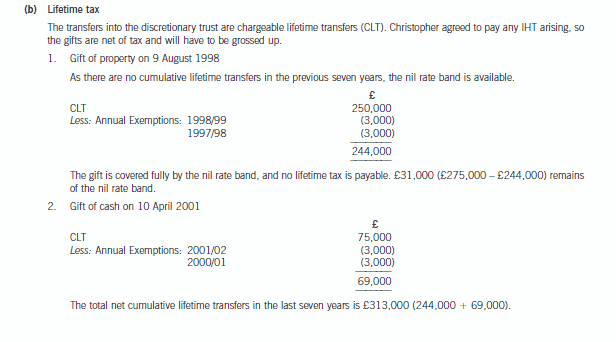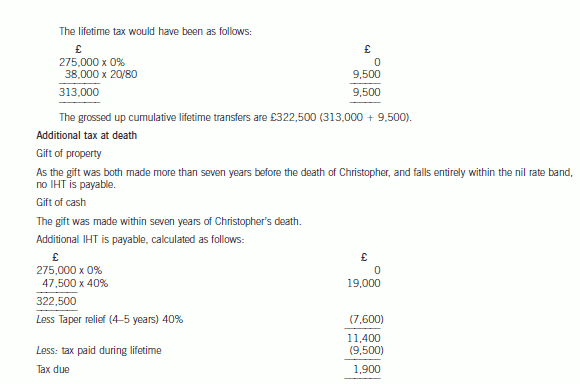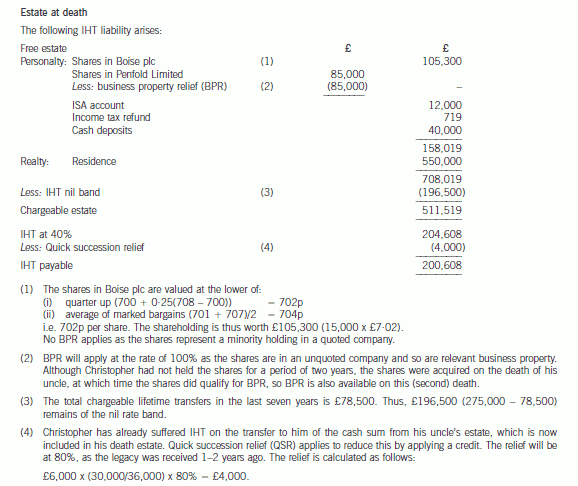2021年青海ACCA考试成绩查询时间
发布时间:2021-04-07
除了关于考试时间,很多青海的考生也有咨询如何查询成绩的,对于初次参加考试的考生,可能还不太清楚什么时候查询,怎么查询成绩,51题库考试学习网就跟大家介绍一下ACCA考试成绩查询的相关情况吧。
2021年ACCA考试成绩公布时间:2021年4月12日,在此分享几点成绩查询后考生们比较关注的几点事项,以便大家查阅!
ACCA考试成绩合格标准:ACCA考试每科满分为100分,50分合格。ACCA考试不会控制一定的考试通过率,因此每门考试只要满足50分及以上即算作通过考试。
ACCA证书申请:
1、通过ACCA专业资格大纲13门课程的考试(其中9门根据学员的教育和专业背景可申请不同程度的免试);
2、完成职业道德与专业技能模块(EPSM);
3、至少三年的相关工作经验。
ACCA证书申请流程:
1、 符合会员的必要条件”3E”的准会员可以填写《ACCA会员申请表》。《ACCA会员申请表》可以直接登陆ACCA网站下载。对于暂时未满足会员的必要条件的准会员,可以在条件满足的任何时间向ACCA递交ACCA会员申请表;
2、 ACCA总部将对会员申请材料进行审核,完全符合条件者将被批准成为ACCA会员,并会收到ACCA英国总部颁发的ACCA会员证书。一般这个过程需要两个月的时间;成为会员约五年后,经申请和资格审查,可以成为资深会员(FCCA)。
3、 ACCA每年2月份和8月份会分别公布上一年12月份和本年6月份的考试成绩。每一个通过ACCA全部考试的学员随后会收到ACCA英国总部颁发的ACCA准会员证书,以确认学员成功通过所有考试。(一般收到时间是3月初和9月初)。
ACCA官方公布的以下情况下之一者,可以申请复议:
(1)参加了考试,并提交了答卷,却通知缺席考试;
(2)缺席考试,却收到考试成绩;
(3)对考试成绩有异议。
如果符合以上情况之一,ACCA学员必须在考试成绩发布日后的15个工作日内提出查卷申请。如果成绩有误,会在下次报考截止日期前收到改正后的成绩。
ACCA继续教育:为保持并更新专业知识和技能,ACCA要求所有会员必须每年参加累计不少于40学时的继续教育。
以上就是51题库考试学习网给大家分享的ACCA考试成绩查询时间的相关信息,希望能够帮到大家!后续请大家持续关注51题库考试学习网,51题库考试学习网将会为大家持续更新最新、最热的考试资讯!
下面小编为大家准备了 ACCA考试 的相关考题,供大家学习参考。
(ii) Identify and explain the principal audit procedures to be performed on the valuation of the investment
properties. (6 marks)
(ii) Additional audit procedures
Audit procedures should focus on the appraisal of the work of the expert valuer. Procedures could include the following:
– Inspection of the written instructions provided by Poppy Co to the valuer, which should include matters such as
the objective and scope of the valuer’s work, the extent of the valuer’s access to relevant records and files, and
clarification of the intended use by the auditor of their work.
– Evaluation, using the valuation report, that any assumptions used by the valuer are in line with the auditor’s
knowledge and understanding of Poppy Co. Any documentation supporting assumptions used by the valuer should
be reviewed for consistency with the auditor’s business understanding, and also for consistency with any other
audit evidence.
– Assessment of the methodology used to arrive at the fair value and confirmation that the method is consistent with
that required by IAS 40.
– The auditor should confirm, using the valuation report, that a consistent method has been used to value each
property.
– It should also be confirmed that the date of the valuation report is reasonably close to the year end of Poppy Co.
– Physical inspection of the investment properties to determine the physical condition of the properties supports the
valuation.
– Inspect the purchase documentation of each investment property to ascertain the cost of each building. As the
properties were acquired during this accounting period, it would be reasonable to expect that the fair value at the
year end is not substantially different to the purchase price. Any significant increase or decrease in value should
alert the auditor to possible misstatement, and lead to further audit procedures.
– Review of forecasts of rental income from the properties – supporting evidence of the valuation.
– Subsequent events should be monitored for any additional evidence provided on the valuation of the properties.
For example, the sale of an investment property shortly after the year end may provide additional evidence relating
to the fair value measurement.
– Obtain a management representation regarding the reasonableness of any significant assumptions, where relevant,
to fair value measurements or disclosures.
(b) Calculate the inheritance tax (IHT) liability arising as a result of Christopher’s death. (11 marks)



In relation to the law of contract, distinguish between and explain the effect of:
(a) a term and a mere representation; (3 marks)
(b) express and implied terms, paying particular regard to the circumstances under which terms may be implied in contracts. (7 marks)
This question requires candidates to consider the law relating to terms in contracts. It specifically requires the candidates to distinguish between terms and mere representations and then to establish the difference between express and implied terms in contracts.
(a) As the parties to a contract will be bound to perform. any promise they have contracted to undertake, it is important to distinguish between such statements that will be considered part of the contract, i.e. terms, and those other pre-contractual statements which are not considered to be part of the contract, i.e. mere representations. The reason for distinguishing between them is that there are different legal remedies available if either statement turns out to be incorrect.
A representation is a statement that induces a contract but does not become a term of the contract. In practice it is sometimes difficult to distinguish between the two, but in attempting to do so the courts will focus on when the statement was made in relation to the eventual contract, the importance of the statement in relation to the contract and whether or not the party making the statement had specialist knowledge on which the other party relied (Oscar Chess v Williams (1957) and Dick
Bentley v Arnold Smith Motors (1965)).
(b) Express terms are statements actually made by one of the parties with the intention that they become part of the contract and
thus binding and enforceable through court action if necessary. It is this intention that distinguishes the contractual term from
the mere representation, which, although it may induce the contractual agreement, does not become a term of the contract.
Failure to comply with the former gives rise to an action for breach of contract, whilst failure to comply with the latter only gives rise to an action for misrepresentation.
Such express statements may be made by word of mouth or in writing as long as they are sufficiently clear for them to be enforceable. Thus in Scammel v Ouston (1941) Ouston had ordered a van from the claimant on the understanding that the balance of the purchase price was to be paid ‘on hire purchase terms over two years’. When Scammel failed to deliver the van Ouston sued for breach of contract without success, the court holding that the supposed terms of the contract were too
uncertain to be enforceable. There was no doubt that Ouston wanted the van on hire purchase but his difficulty was that
Scammel operated a range of hire purchase terms and the precise conditions of his proposed hire purchase agreement were
never sufficiently determined.
Implied terms, however, are not actually stated or expressly included in the contract, but are introduced into the contract by implication. In other words the exact meaning and thus the terms of the contract are inferred from its context. Implied terms can be divided into three types.
Terms implied by statute
In this instance a particular piece of legislation states that certain terms have to be taken as constituting part of an agreement, even where the contractual agreement between the parties is itself silent as to that particular provision. For example, under s.5 of the Partnership Act 1890, every member of an ordinary partnership has the implied power to bind the partnership in a contract within its usual sphere of business. That particular implied power can be removed or reduced by the partnership agreement and any such removal or reduction of authority would be effective as long as the other party was aware of it. Some implied terms, however, are completely prescriptive and cannot be removed.
Terms implied by custom or usage
An agreement may be subject to terms that are customarily found in such contracts within a particular market, trade or locality. Once again this is the case even where it is not actually specified by the parties. For example, in Hutton v Warren (1836), it was held that customary usage permitted a farm tenant to claim an allowance for seed and labour on quitting his tenancy. It should be noted, however, that custom cannot override the express terms of an agreement (Les Affreteurs Reunnis SA v Walford (1919)).
Terms implied by the courts Generally, it is a matter for the parties concerned to decide the terms of a contract, but on occasion the court will presume that the parties intended to include a term which is not expressly stated. They will do so where it is necessary to give business efficacy to the contract.
Whether a term may be implied can be decided on the basis of the officious bystander test. Imagine two parties, A and B, negotiating a contract, when a third party, C, interrupts to suggest a particular provision. A and B reply that that particular term is understood. In just such a way, the court will decide that a term should be implied into a contract.
In The Moorcock (1889), the appellants, owners of a wharf, contracted with the respondents to permit them to discharge their ship at the wharf. It was apparent to both parties that when the tide was out the ship would rest on the riverbed. When the tide was out, the ship sustained damage by settling on a ridge. It was held that there was an implied warranty in the contract that the place of anchorage should be safe for the ship. As a consequence, the ship owner was entitled to damages for breach of that term.
Alternatively the courts will imply certain terms into unspecific contracts where the parties have not reduced the general agreement into specific details. Thus in contracts of employment the courts have asserted the existence of implied terms to impose duties on both employers and employees, although such implied terms can be overridden by express contractual provision to the contrary.
声明:本文内容由互联网用户自发贡献自行上传,本网站不拥有所有权,未作人工编辑处理,也不承担相关法律责任。如果您发现有涉嫌版权的内容,欢迎发送邮件至:contact@51tk.com 进行举报,并提供相关证据,工作人员会在5个工作日内联系你,一经查实,本站将立刻删除涉嫌侵权内容。
- 2021-04-07
- 2020-09-05
- 2020-09-05
- 2020-09-05
- 2020-08-12
- 2020-08-12
- 2021-01-06
- 2019-03-20
- 2020-08-17
- 2019-03-20
- 2020-08-12
- 2021-01-08
- 2019-03-20
- 2020-01-01
- 2019-01-05
- 2020-08-12
- 2019-01-05
- 2020-08-12
- 2020-01-10
- 2019-01-05
- 2020-08-12
- 2020-09-05
- 2020-03-20
- 2019-03-20
- 2020-09-05
- 2021-05-22
- 2019-01-05
- 2020-01-10
- 2020-10-18
- 2020-04-26